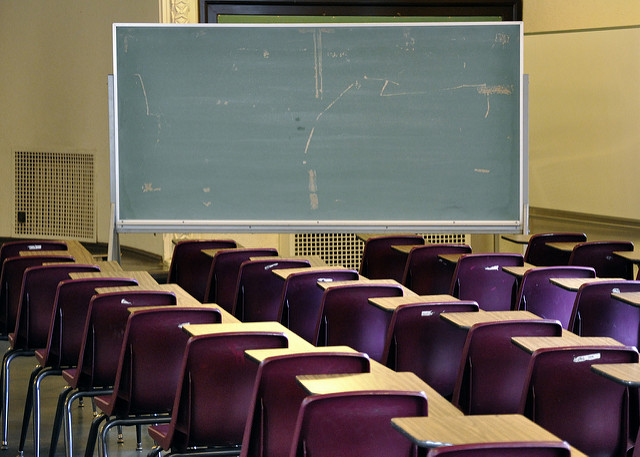Like this article? rabble is reader-supported journalism. Chip in to keep stories like these coming.
Saskatchewan teachers believe they are being blamed for increasing education costs in the province, the provincial teachers’ association says.
Recent budgetary announcements from the governing Saskatchewan Party revealed it had decided against funding the 1.9 per cent raise in teachers’ salaries for 2016/17 that had been already agreed upon during bargaining.
Education Minister Don Morgan said on June 14 the government would only put up enough cash to fund half of the increased salary amount. “We’re paying for approximately half of the increase, to fund it all the way across the province would cost $18 million and we’re paying nine of that,” Morgan told reporters.
School boards have been told to find the rest, ensuring the 2013-2017 collective agreement — negotiated between the government, the Saskatchewan Teachers’ Federation (STF) and the Saskatchewan School Boards’ Association last year — is honoured.
When the Saskatchewan Ministry of Education delivered its $2.2 billion budget at the beginning of the month, 13 of the province’s 28 school divisions were allocated less money than last year. Of these, the North East school district — which serves about 1,700 students — received the biggest decrease. Nearly $2.1 million was trimmed from its budget, equating to a reduction of about 3.6 per cent between financial years.
“The STF has communicated directly with the Minister of Education regarding concerns that teachers have about underfunding of the system, and the more specific concerns that the media has created by blaming teacher salaries for increasing costs within the system,” the STF told rabble.ca in an email.
In Saskatchewan, school boards are responsible for doling out how money will be spent in their respective divisions. Some school divisions have indicated budget shortfalls will be met by drawing on reserve funds, while others are still working out where to trim from without impacting students, the STF said.
Despite this, it had been “discouraging to teachers” to be caught up in the middle of a dispute between the provincial government and school divisions, especially as things wrapped up for the academic year.
“Implying that teacher salaries are the catalyst for tough budget decisions is inappropriate,” said the STF.
“We need to have deeper conversations about our common vision for education and we need to listen to those at the centre of education — students, parents and teachers. This must not be just about cutting costs.”
Connie Bailey, president of the Saskatchewan School Boards’ Association (SSBA), said the organization was collecting information from school boards about the impact of this year’s budget.
While the SSBA had been warned the recent budget would be “difficult” for schools, it only became aware of the government’s decision not to fully fund the agreed increase in teachers’ salaries when it was made public in the provincial education budget.
“We are disappointed that they chose not to complete the obligations within that negotiated contract,” Bailey said.
“I believe the intent of the contract will be fulfilled, that the school divisions will have to find the resources in order to fulfil the obligations to their employee.”
Charles Smith, assistant professor in the Department of Political Science at the University of Saskatchewan, said the government had effectively shifted its financial obligations onto school divisions.
“They [teachers] negotiated this contract in good faith, and then the province essentially offloads its responsibility to follow the contract onto school boards without knowing if they have any capacity to raise revenue,” Smith said.
“They’re basically asking that institutions [school divisions] do the cuts that they don’t want to do themselves. The school boards are left holding the shortfall that they had no hand in negotiating really.”
The government’s decision could also have implications for future bargaining, he said.
“What does that say about the government’s commitment to respect collective agreements — I think it does fly in the face of the principals of collective bargaining if you agree to something then don’t.”
The STF represents 13,000 teachers in Saskatchewan.
Teuila Fuatai is a recent transplant to Canada from Auckland, New Zealand. She settled in Toronto in September following a five-month travel stint around the United States. In New Zealand, she worked as a general news reporter for the New Zealand Herald and APNZ News Service for four years after studying accounting, communication and politics at the University of Otago. As a student, she had her own radio show on the local university station and wrote for the student magazine. She is rabble’s labour beat reporter this year.
Photo: flickr/Chris



